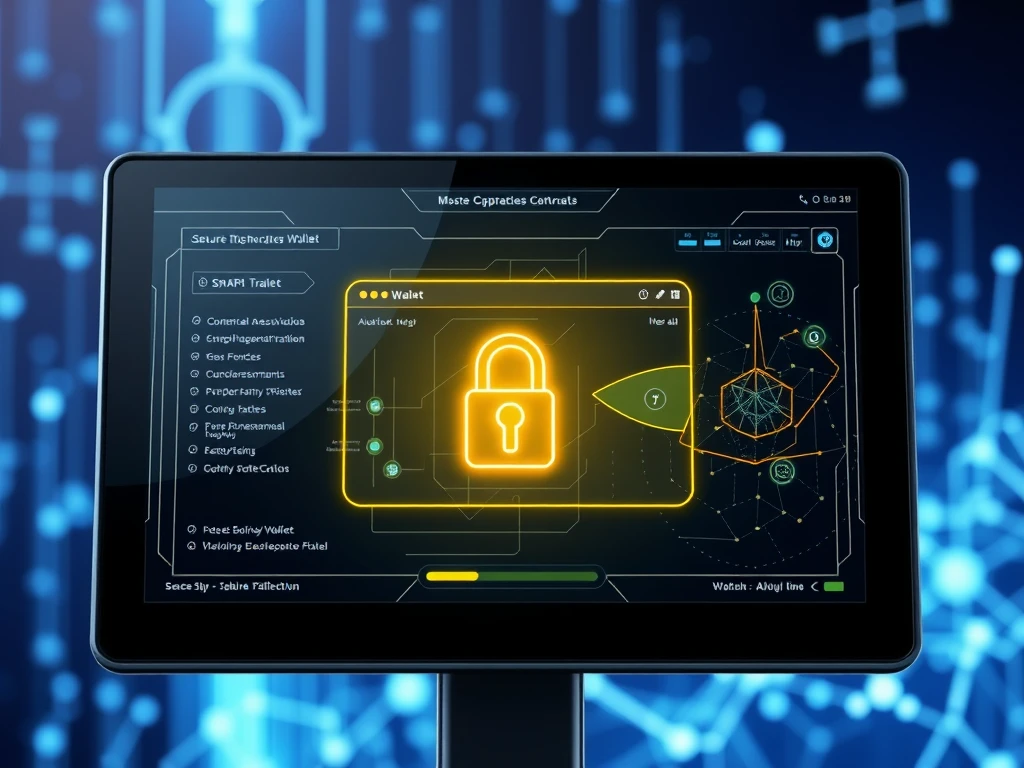Safe Launches Bold New Unit for Enterprise Crypto Wallets

For businesses holding or interacting with digital assets, security and control are paramount. The news from Safe, formerly Gnosis Safe, marks a significant step forward in addressing these critical needs by focusing on enterprise crypto wallets.
Introducing Safe Labs: Building for Enterprise Self-Custody
Safe has officially launched a new subsidiary called Safe Labs. This unit is wholly owned by Safe and is specifically designed to develop advanced, enterprise-grade solutions. Their core focus is on building robust self-custody tools tailored for businesses and institutions using Safe’s established infrastructure.
According to Safe, the goal is to provide businesses with absolute confidence in their digital asset control. Lukas Schor, co-founder of Safe, highlighted that Safe Labs aims to build infrastructure that is secure and intuitive by design for enterprise users.
What are Safe Smart Contract Wallets?
At the heart of Safe Labs’ offerings are Safe Smart Accounts. These are modular, smart contract-based wallets that provide a flexible and programmable way to manage digital assets. Unlike traditional single-key wallets, smart contract wallets can implement complex logic, such as requiring multiple approvals for a transaction.
Key features often associated with smart contract wallets include:
- Multisignature capabilities: Requiring multiple keys (or signers) to authorize a transaction, significantly enhancing security for shared or organizational funds.
- Programmability: Allowing for custom transaction rules, automated actions, and integrations with other smart contracts.
- Modularity: Enabling the addition or removal of features and security modules as needed.
Safe’s smart account infrastructure is already widely used, currently securing around $60 billion in assets and powering a notable percentage of Ethereum transactions and the broader EVM smart-account market.
Who is Safe Labs Targeting?
Rahul Rumalla, who leads Safe Labs, explained that the target market is essentially any business that needs to hold or expose customers to value on the blockchain. This includes a wide range of potential clients, from financial institutions to Web3 companies and beyond.
Many enterprises are already utilizing Safe’s existing solutions. The creation of Safe Labs allows the company to develop more specific, opinionated products directly addressing the unique requirements and scale of institutional clients.
The Challenge of Blind Signing
While multisignature setups enhance security, they often intersect with a significant challenge in the crypto space: blind signing.
Blind signing occurs when a user approves a transaction on a hardware wallet without being able to fully verify the transaction details on the device’s trusted screen. This is common with complex smart contract interactions where the data format isn’t easily displayable by the hardware wallet.
The user is forced to trust the information presented by a connected, potentially compromised computer or device. This vulnerability has led to significant losses, including a recent high-profile incident involving a large exchange that was linked to blind signing within a Safe suite instance (though Safe attributed the root cause to a compromised developer machine).
How Does Safe Labs Address Blind Signing?
Safe’s Smart Accounts currently still require blind signing for many complex onchain interactions. A long-term solution to this problem necessitates closer collaboration between smart contract wallet developers like Safe and hardware wallet manufacturers like Ledger and Trezor.
Hardware wallet leaders have acknowledged that blind signing is a widespread industry issue, likening it to signing a blank check. Addressing this requires developing standards and technical solutions that allow complex smart contract data to be safely interpreted and displayed on hardware devices.
Safe Labs, focusing specifically on enterprise needs, is well-positioned to drive forward solutions that minimize or eliminate the need for blind signing in institutional workflows, although the technical integration with hardware remains a hurdle for the industry as a whole.
Conclusion: A Step Towards More Secure Enterprise Crypto
The launch of Safe Labs signifies a dedicated effort to mature the infrastructure for enterprise crypto wallets and enhance self-custody solutions. By focusing on their robust smart contract wallets, Safe aims to provide businesses with the security and control needed to confidently engage with digital assets. While challenges like blind signing persist across the industry, Safe Labs’ specialized focus suggests a commitment to developing tailored solutions for institutional adoption.









